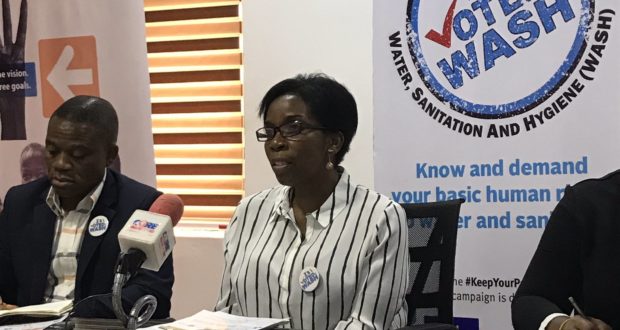WaterAid Nigeria has partnered with civil society organisations (CSOs) to inaugurate a training programme focused on securing funding for the underfunded Water, Sanitation, and Hygiene (WASH) sector in Nigeria.

Theodora Igboaruka, Policy and Advocacy Manager, WaterAid Nigeria, emphasised the role of sanitation and hygiene in national development at a two-day training on WASH Budget Analysis, Tools, and Skills in Abuja on Monday, November 18, 2024.
According to her, these areas have been greatly neglected in spite of their interconnectedness with other Sustainable Development Goals (SDGs).
“The initiative aims to bridge critical funding gaps and ensure progress toward achieving the SDGs, particularly SDG six, which focuses on universal access to water and sanitation,” she said.
She said the ultimate objective was to create evidence-based tools for advocacy.
Igboaruka explained that the training is designed to equip CSOs with skills to analyse budget trends, assess the share of sanitation and hygiene in national budgets, and identify investment gaps.
“This data will form the foundation for advocacy, providing evidence to engage decision-makers and stakeholders in prioritising sanitation and hygiene financing.
“Collaboration, synergy, and amplified advocacy efforts are crucial to ensure these issues are no longer overlooked but are recognised as essential for national development and global commitments”.
Earlier, Mr Benson Attah, National Coordinator, Society for Water and Sanitation (NEWSAN), revealed challenges associated with budget transparency and stakeholder engagement.
He noted that while budgeting was essential for planning and resource allocation, it often faced resistance, particularly from civil servants.
“There is a perception of scrutiny and exposure during budget discussions, which leads to apprehension and sometimes resistance,” Attah said.
He recounted an instance where an officer assigned to assist with budget tracking disappeared, illustrating the entrenched resistance to accountability within the system.
Attah stressed that without transparency, it was impossible to assess how funds are utilised or measure their impact.
“This lack of trust erodes credibility and affects governance, particularly in the water and sanitation sector,” he noted.
Attah urged civil servants and stakeholders to view budgeting not as a punitive tool but as a mechanism to ensure efficiency, fairness, and impact.
“This initiative is a step toward bridging the funding gap in the WASH sector and ensuring that Nigeria remains on track to achieve the SDGs by 2030,” he added.
The participants, primarily NEWSAN members, were trained on various skills, including budget trend analysis, tracking, monitoring, and evaluation, among others.
By Tosin Kolade
